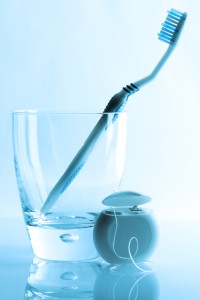
Best Way to Brush Your Teeth
For most people, you may think that the act of using your toothbrush twice a day is enough to keep your teeth in great shape. In reality, this simply isn’t true.
Sticking your toothbrush in your mouth for a few minutes every day won’t effectively remove the bacteria that can cause tooth decay. It’s important to look at the techniques you use to determine if you’re effectively cleaning your teeth. Here’s a brief rundown at how you should brush your teeth:
- Work your way from left to right on the outer surfaces of your upper and lower teeth using small circular motions
- Next, clean the inner areas of your upper and lower teeth with circular motions
- Use circular motions to clean your back molars and other chewing surfaces
- To remove bacteria that accumulates on your tongue, use your toothbrush to brush your tongue
If the technique isn’t your main concern with brushing your teeth, the duration it takes you to clean your teeth can be a concern. Properly brushing your teeth should take at least two minutes. Unfortunately, many people will just do a quick brush along their teeth in under a minute and miss out on all of the potentially harmful bacteria still hiding away. If you’re unsure about the time you take to brush your teeth, use a stopwatch to make sure you’re brushing for the full two minutes. Some electric toothbrushes even have timers set to let you know when your two minutes are up.
Other Common Mistakes with Brushing
The technique and timing of brushing aren’t the only ways your oral hygiene routine can suffer. Here’s a quick look at the other common ways people can brush their teeth in an ineffective way:
Using an old toothbrush: It’s recommended that we change out a toothbrush every few months. If you’re using an old toothbrush, frayed bristles can be less effective at removing bacteria and food particles off of your teeth,
Brushing too aggressively: More isn’t always better and the same is true when it comes to the amount of pressure you use while brushing your teeth. Brushing aggressively can end up harming your tooth enamel and the sensitive gum tissue that holds your teeth in place. Instead, use gentle circular motions to effectively remove bacteria.
Use a soft-bristled toothbrush: Going along with our last point, use a toothbrush that is gentle with your teeth. Using a hard-bristled toothbrush can be just as damaging as brushing your teeth too hard.
Contact our Office
Effectively brushing your teeth is a crucial way to avoid oral health problems like tooth loss. If you are currently dealing with tooth loss, we recommend you seek treatment immediately to minimize the amount of damage that can occur to your jawbone and remaining teeth. You can achieve a beautiful, complete smile with the help of dental implants. To get started on your dental implant journey, contact our office today to schedule your one-on-one consultation with Dr. Snider.
